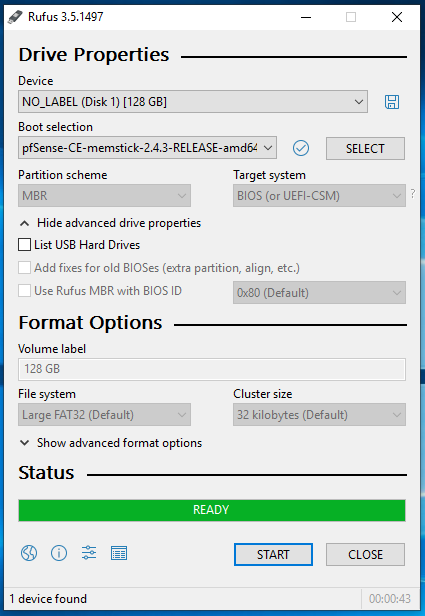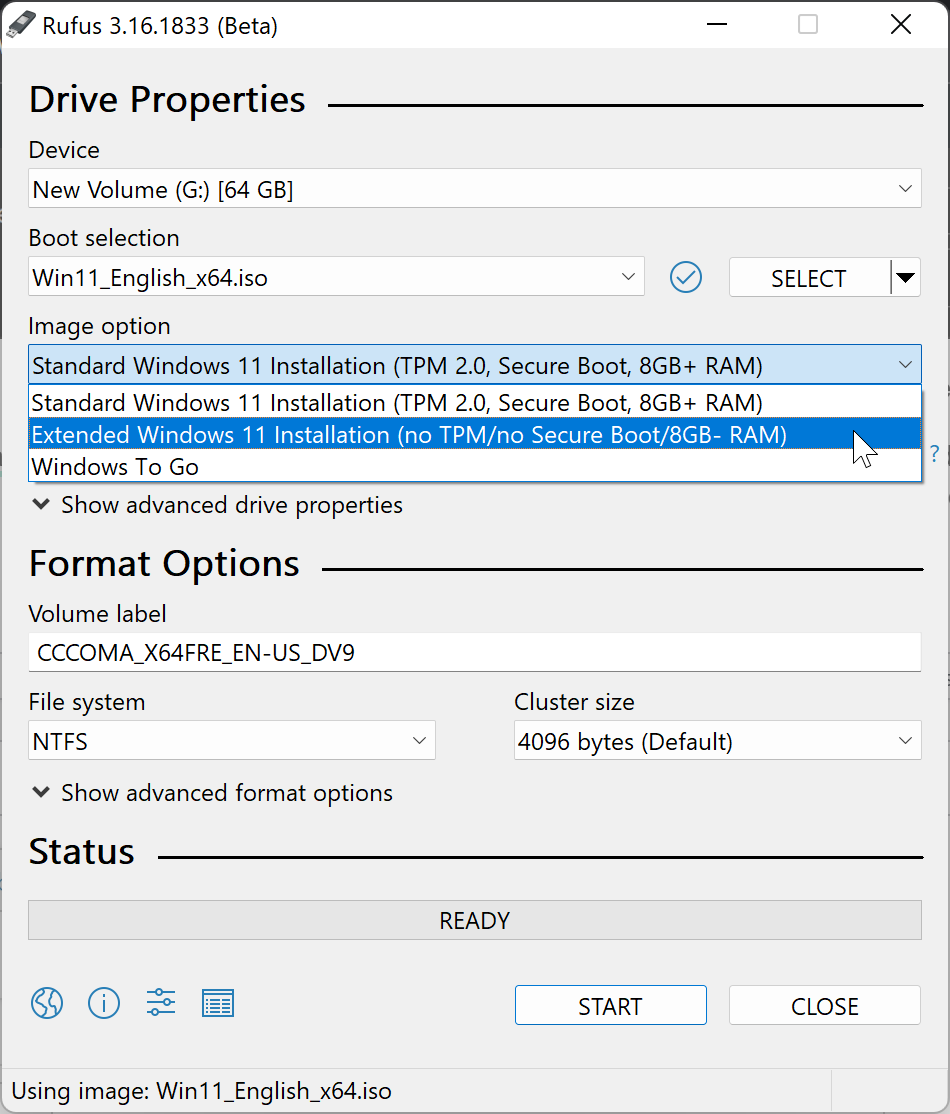

- #Rufus for mac how to#
- #Rufus for mac install#
- #Rufus for mac upgrade#
- #Rufus for mac portable#
- #Rufus for mac license#
If you simply want to upgrade to Catalina from an older version of macOS, the steps are much more straightforward - simply search for the name of the OS in the App Store and click Get to download the installation files, and start the process on your computer. You can now quit Terminal, eject your flash drive and use it for other installations. Bear in mind that your external drive will be reformatted, and all data will be deleted from itĪt the end of the process, you’ll receive a notification. You’ll see a warning about the disk being erased-confirm the action. MyVolume is the name of your external driveĥ.
#Rufus for mac install#
Type in: sudo /Applications/Install\ macOS\ Mojave.app/Contents/Resources/createinstallmedia -volume /Volumes/MyVolume-if you want to install macOS Mojave. Open Terminal by following Applications → Utilities → Terminalģ. Make sure that you have the installation files on your Mac before trying this step out. Use Terminal to create a bootable installerĪnother way to create a bootable installer for macOS is to use Terminal. You can run this OS when you connect the disk to your Mac-the Mac itself will keep its operating system. Now your flash drive runs the version of macOS that you want. Click Continue and wait for the installation to be complete It’s set on your internal hard drive by default-click on Show All Disks and choose your macOS USB drive insteadĩ.
#Rufus for mac license#
Click past the license agreement until you reach the page asking you which disk you want to install the OS on. Open the macOS installer that you downloaded earlierĨ. Choose OS X Extended (Journaled) for format and GUID Partition Map for schemeħ. Before formatting the disk, make sure it’s backed upĦ. In the sidebar on the left, click on your disk nameĤ.

Open Disk Utility by following Applications → Utilities → Disk Utilityģ.


To install macOS on an external hard drive:Ģ. Now that you have the installation files ready on your Mac, you can move them to your USB drive for future use. To save you the trouble, here’s a list of macOS installers:Ĭreate bootable USB drive with Mac Disk Utility If, however, you’re running macOS Mojave or Catalina, you’ll need to look for older versions on Apple’s official website. In older versions of macOS, you could find all the previous installers in the list of purchased apps in your App Store account in older macOS versions. You can create a bootable installer for any operating system if you have the right installer. In this case, the system will be installed on that Mac, and the installation files will disappear when the process is finished. If, however, you only want to reinstall macOS once on one computer, you don’t have to use a carrier. You might want to keep installing files on an external drive if you think you might need to install the operating system multiple times or on different computers. In the following instructions, we will use a USB flash drive as an external carrier example. Give your disk the name of the operating system, e.g., Sierra, Mojave, Catalina. Whichever type of drive you choose, make sure that it has at least 12GB of free memory.īear in mind-when you download an installer, the disk will be reformatted to suit the operating system you’re trying to run. Use Terminal to create a bootable installerįor your external disk to run macOS, you can choose as a USB flash drive, as well as an SSD or HDD.
#Rufus for mac how to#
In this article, you’ll find detailed instructions and answers to your questions on how to make a bootable USB on Mac. You can try out the different tools for free, so download it, and see what you think. MacKeeper can do everything from finding malware to updating your apps for you.
#Rufus for mac portable#
A bootable macOS (previously, OS X) install disk is a portable device containing all the necessary installation files for a selected version of macOS.


 0 kommentar(er)
0 kommentar(er)
